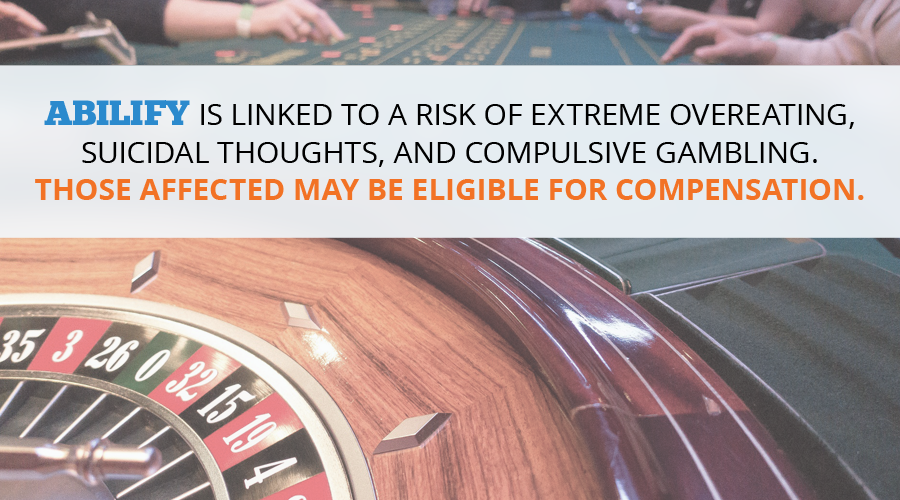Why File an Abilify Lawsuit?
Recent Abilify lawsuits claim:
- Otsuka and Bristol-Myers Squibb manufactuered and sold a defective medication.
- Manufacturers may have been aware of but concealed the potential compulsivity risks of Abilify, as well as mental and psychological side effects.
- Abilify labels warn of other side effects, like suicidal thoughts or actions, it makes no mention of the risk of compulsive behavior.
- Otsuka and Bristol-Myers Squibb failed to warn the public about serious Abilify side effects.
- Otsuka and Bristol-Myers Squibb improperly marketed of the antipsychotic drug.
- Manufactuerers misrepresented the safety and effectiveness of Abilify, thus preventing individuals making a fully informed decision regarding treatment.


